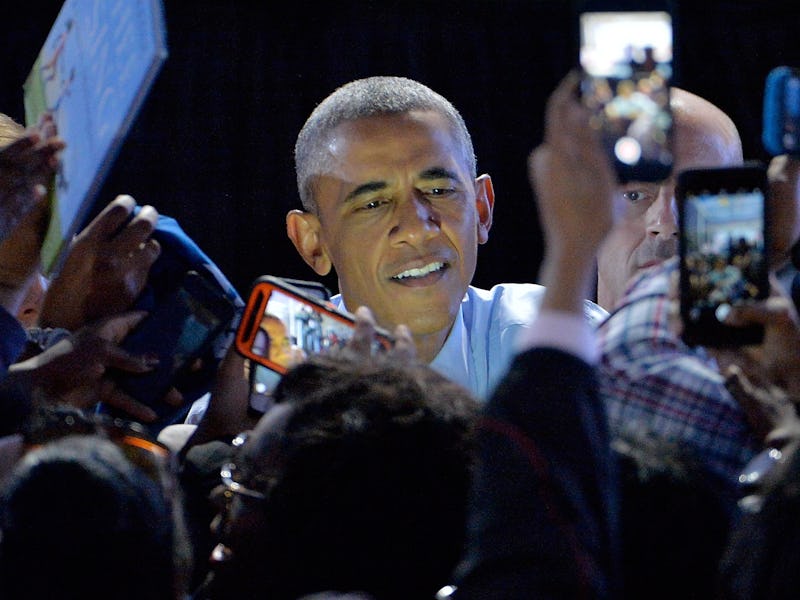Obama Reassures USA: We're a Long Way From Computers Drugging Us

One of humanity’s greatest fears about the future of Artificial Intelligence is that one day, the machines will realize human beings don’t matter. Fortunately, President Barack Obama says we’re a “reasonably long way away from that.”
Somehow, it’s both reassuring and a little worrying that a Skynet-like robot takeover is on the president’s radar. Obama recently sat down with Wired Editor in Chief Scott Dadich and Joi Ito, the director of the MIT Media Lab, to discuss the future of A.I. in America. (Obama’s guest editor for Wired this month, continuing his lame duck obsession with self-driving cars, going to Mars, and all things science and technology before he leaves office.) The interview was published Wednesday, ahead of the White House Frontiers Conference, which starts on Thursday, October 13.
Obama told Wired that A.I. has been “seeping into our lives in all sorts of ways, and we just don’t notice.” While that may sound insidious, Obama said the realities of A.I. development have been “colored by popular culture.” The truth actually breaks down into two types of robot intelligence: generalized and specialized.
“In science fiction, what you hear about is generalized A.I., right? Computers start getting smarter than we are and eventually conclude that we’re not all that useful, and then either they’re drugging us to keep us fat and happy or we’re in the Matrix,” Obama said. “My impression, based on talking to my top science advisers, is that we’re still a reasonably long way away from that.”
Essentially, generalized A.I. is the kind of all-encompassing digital hive-mind that has tech tycoons like Elon Musk so worried. Obama said most of the current applications of A.I. — self-driving cars, go-playing computers and the like — are more representative of specialized A.I.
“It’s worth thinking about [a generalized A.I. takeover] because it stretches our imaginations and gets us thinking about the issues of choice and free will that actually do have some significant applications for specialized A.I., which is about using algorithms and computers to figure out increasingly complex tasks,” Obama said.
And while we may be a long way from Skynet, specialized A.I. is getting really, really good. Take Google’s AlphaGo computer, for example, which was designed to play the immensely complicated Chinese game of Go against the best human players in the world. In it’s last series of matches with Lee Sedol, a multiple-time world champion, AlphaGo pulled off a move so next-level that other professionals thought it was a glitch, because they had never seen a human even attempt it. Check it out:
The downside here is that specialized A.I. could start making humans irrelevant. If a computer can master a creative, complex, intellectual game, what else can it do? While we’re not talking Matrix battery factories yet, Obama said specialized A.I. — which is present in some form in almost every industry — could start eliminating jobs from the American workforce. The question now, Obama said, is pointing it in the right direction.
“If properly harnessed, it can generate enormous prosperity and opportunity,” he said.
So for the time being, we might need to worry about robots taking our jobs, but not about them keeping us “fat and happy” in the Matrix.